Sisi vows to protect Egypt’s water supply

AFP
President Abdel Fattah al-Sisi vowed Monday to protect Egypt’s water supply while striving for peace with the Nile upstream countries of Sudan and Ethiopia, which is building a controversial dam.
“Egypt will not go to war with its brothers,” Sisi said on state television, although Cairo fears its water supply will be affected by Ethiopia’s Grand Renaissance Dam.
Foreign Minister Sameh Shoukry visited the Ethiopian capital last month for talks on the dam project on the Blue Nile.
Egypt relies almost totally on the Nile for irrigation and drinking water, and says it has “historic rights” to the river, guaranteed by treaties from 1929 and 1959.
Sisi also stressed that Egypt was investing in its military to protect national security.
“This is a national security need... You have military power to protect you, to protect this peace I’m talking about,” said Sisi, himself a former armed forces chief.
“We always make sure that we stay within our borders, not conspire against anyone, not interfere in others’ affairs,” he said.
Sisi said his message was directed at Egyptians as well as “our brothers in Sudan and in Ethiopia so that the issue becomes clear for them”.
Egypt is building a massive wastewater treatment and desalination plant to cope with potential shortages, the president said last week.
Cairo argues that the 1929 and 1959 treaties grant it 87 percent of the Nile’s flow, as well as the power to veto upstream projects.
The Blue and the White Nile tributaries converge in Sudan’s capital Khartoum and from there run north through Egypt to the Mediterranean.
The dam in Ethiopia is designed to feed a hydroelectric project to produce 6,000 megawatts of power -- the equivalent of six nuclear-powered plants.
Ethiopia began building the dam in 2012 and was initially expected to commission it in 2017. But Ethiopian media reports say only about 60 percent has so far been built.
Egypt’s administration of the Halayeb triangle, which lies near the Red Sea in a mineral-rich border region, is a bone of contention with Sudan.
Khartoum says Halayeb has been part of its sovereign territory since shortly after independence in 1956, accusing Egypt of occupying it.
Last May, Sudan banned imports of Egyptian agricultural and animal products, and Khartoum recalled its ambassador from Cairo for “consultations” in January.
NEWS MIDDLE EAST
Sadat nephew will not stand in upcoming Egypt election
Sadat said he had concerns for the safety of his campaign team at a time when elections were to be held with Egypt under a state of emergency. (Reuters)
AFPMonday, 15 January 2018 Text size A A A
Mohamed Anwar Sadat, a dissident and nephew of Egypt’s late president of the same name, said on Monday he will not run in this year’s presidential poll because the climate was not right for free elections.
“I don’t feel, and I am not assured, that the elections will be held in the form that we were hoping for... Therefore, we will not enter a losing battle,” the former legislator told reporters in Cairo.
Despite not yet having announced his own candidacy in the presidential race, incumbent Abdel Fattah al-Sisi is widely expected to stand and win in the first round, which is to be held March 26-28. Campaigning begins on February 24 and will last until March 23.
Sisi, Egypt’s former army chief, was elected in 2014, a year after leading the military to oust his predecessor Mohamed Morsi amid mass protests against the Muslim Brotherhood’s year-long rule.
Sadat said he had concerns for the safety of his campaign team at a time when elections were to be held with Egypt under a state of emergency.
Latest News
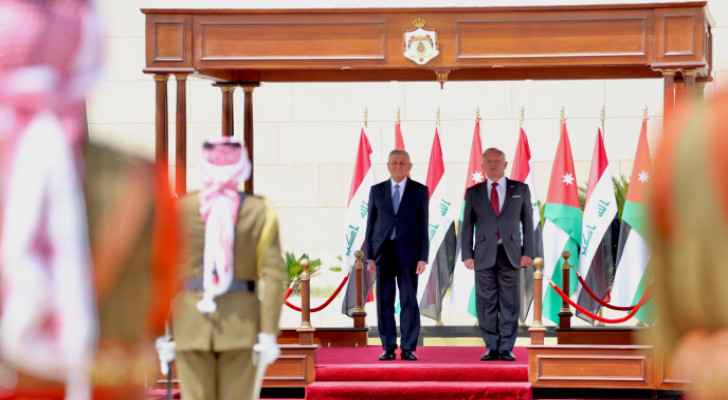 King Abdullah, Iraqi President discuss Gaza in Amman talks
King Abdullah, Iraqi President discuss Gaza in Amman talks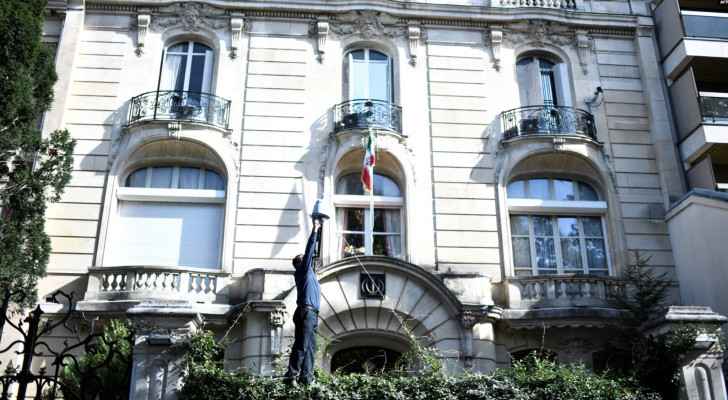 France summons Iranian ambassador over strikes against “Israel”
France summons Iranian ambassador over strikes against “Israel”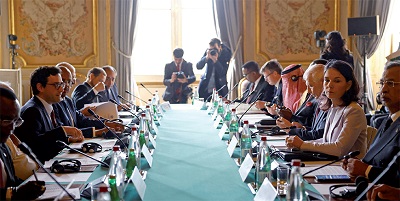 France hosts Sudan talks a year into 'forgotten' war
France hosts Sudan talks a year into 'forgotten' war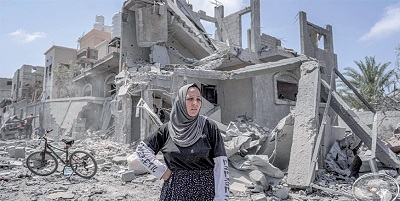 Israel presses on in Gaza as world awaits reaction to Iran attack
Israel presses on in Gaza as world awaits reaction to Iran attack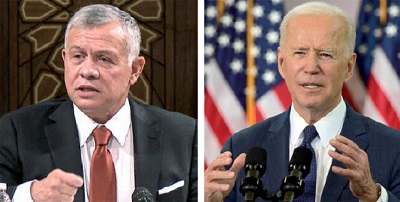 King, Biden discuss regional de-escalation, need to reach Gaza ceasefire
King, Biden discuss regional de-escalation, need to reach Gaza ceasefire
Most Read Articles
- King, Biden discuss regional de-escalation, need to reach Gaza ceasefire
- Safadi says Israel behind increasing regional tension, warns of Gaza war spillover risk
- World urges restraint after unprecedented Iran attack on Israel
- Cassation Court upholds four years prison term for drug dealer
- Gov’t affirms readiness to deal with any threats to Jordan's safety, security
- France summons Iranian ambassador over strikes against “Israel”
- King receives invitation from Azeri president to attend COP29
- Amman develops into centre for Arabic language learning
- Israeli Occupation Forces release detainees from Gaza Strip amid ongoing aggression
- King Abdullah, Iraqi President discuss Gaza in Amman talks